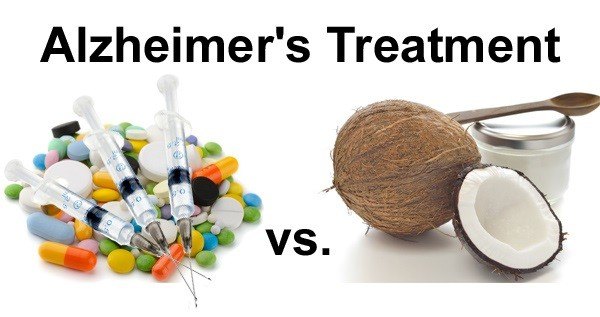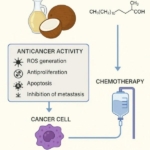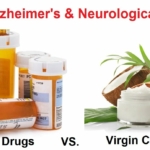
Comments by Brian Shilhavy
Editor, Health Impact News
Big Pharma has been trying to create a blockbuster drug for the very lucrative Alzheimer’s Disease market for more than a decade.
But they have repeatedly failed, mainly because they start with the wrong presuppositions on the cause of Alzheimer’s, basing it on “genetics” instead of environmental causes.
The over 55 age population has always been a cash cow for Big Pharma, as the most profitable drug of all time was Pfizer’s Lipitor, a statin drug that artificially lowers one’s cholesterol.
Prior to its patent expiring at the end of 2011, no other drug in human history had racked up more sales than this one single drug, as their advertising campaign against cholesterol resulted in doctors placing nearly one out of every four people over the age of 55 on statin drugs to lower their cholesterol.
But 25% of our body’s cholesterol resides in our brains, so there have been honest researchers over the years, such as Dr. Stephanie Seneff at MIT, who have linked low cholesterol to a rise in Alzheimer’s Disease. See:
The Clue to Why Low Fat Diet and Statins may Cause Alzheimer’s
And so it is no surprise that coconut oil, demonized by Big Pharma, the USDA, the FDA and just about every other regulatory agency in the U.S. since the 1970s, can provide dramatic improvement to Alzheimer’s Disease and other forms of dementia, often with dramatic results.
See our body of research provided over the years on coconut oil, along with amazingly dramatic testimonials for curing Alzheimer’s here.
We have covered all the previous failures of Big Pharma to produce a drug to treat Alzheimer’s over the years, but just this week the FDA finally approved a drug for the treatment Alzheimer’s Disease.
But as reporter Andrew Joseph of Stat News writes, the FDA did so in spite of the fact that their own 11 doctor expert panel had 10 of those doctors state that “there was not enough evidence to show it could slow cognitive decline,” and the 11th doctor voted “uncertain.”
And now one of those doctors, Neurologist Joel Perlmutter of Washington University in St. Louis, has resigned.
Member of FDA’s expert panel resigns over controversial Alzheimer’s therapy approval
by Andrew Joseph
Stat News
Excerpts:
Following the Food and Drug Administration’s polarizing authorization of the Alzheimer’s therapy Aduhelm on Monday, a member of an agency advisory committee that recommended against the drug’s approval has resigned.
Neurologist Joel Perlmutter of Washington University in St. Louis, a member of the FDA’s expert panel for nervous system therapies, told STAT in an email that he had quit the committee on Monday “due to this ruling by the FDA without further discussion with our advisory committee.”
The advisory committee, which convened in November, couldn’t have been more openly skeptical of the drug, also known as aducanumab. Ten of the 11 panelists found that there was not enough evidence to show it could slow cognitive decline. The 11th voted “uncertain.”
But the FDA still approved the treatment on Monday. On top of the potentially massive implications for patients, clinicians, and health care spending, the decision also raised questions about the role of the advisory committees — and what it meant that the agency, in its final adjudication, bucked the very panel it had convened.
“This isn’t the first time when I was on a committee where the committee voted one way and the FDA decided another,” said biostatistician Scott Emerson, a professor emeritus at the University of Washington, who has served on many advisory committees in different disease areas.
“This was the first time that nobody voted for approval of this drug — nobody — and they went against that.”
Read the full article at Stat News.
For a limited time, you can get my eBook, Virgin Coconut Oil and Alzheimer’s Disease: A Holistic Guide to Geriatric Care, for FREE!




 HHS Secretary Kennedy Breaks His Promise: "War on Saturated Fat" Kept in Tact with New U.S. Dietary Guidelines
HHS Secretary Kennedy Breaks His Promise: "War on Saturated Fat" Kept in Tact with New U.S. Dietary Guidelines Research Continues to Show Virgin Coconut Oil's Effectiveness in Treating Cancer
Research Continues to Show Virgin Coconut Oil's Effectiveness in Treating Cancer Coconut Oil Continues to Benefit Alzheimer's Patients over Drugs as Studies Continue for Neurological Benefits
Coconut Oil Continues to Benefit Alzheimer's Patients over Drugs as Studies Continue for Neurological Benefits How the Simple High-Fat Low-Carb Ketogenic Diet Continues to Change People's Lives
How the Simple High-Fat Low-Carb Ketogenic Diet Continues to Change People's Lives New Studies Continue to Show that Coconut Oil is the Best Oil for Treating Skin Conditions and Maintaining Healthy Skin and Teeth
New Studies Continue to Show that Coconut Oil is the Best Oil for Treating Skin Conditions and Maintaining Healthy Skin and Teeth
2 Comments